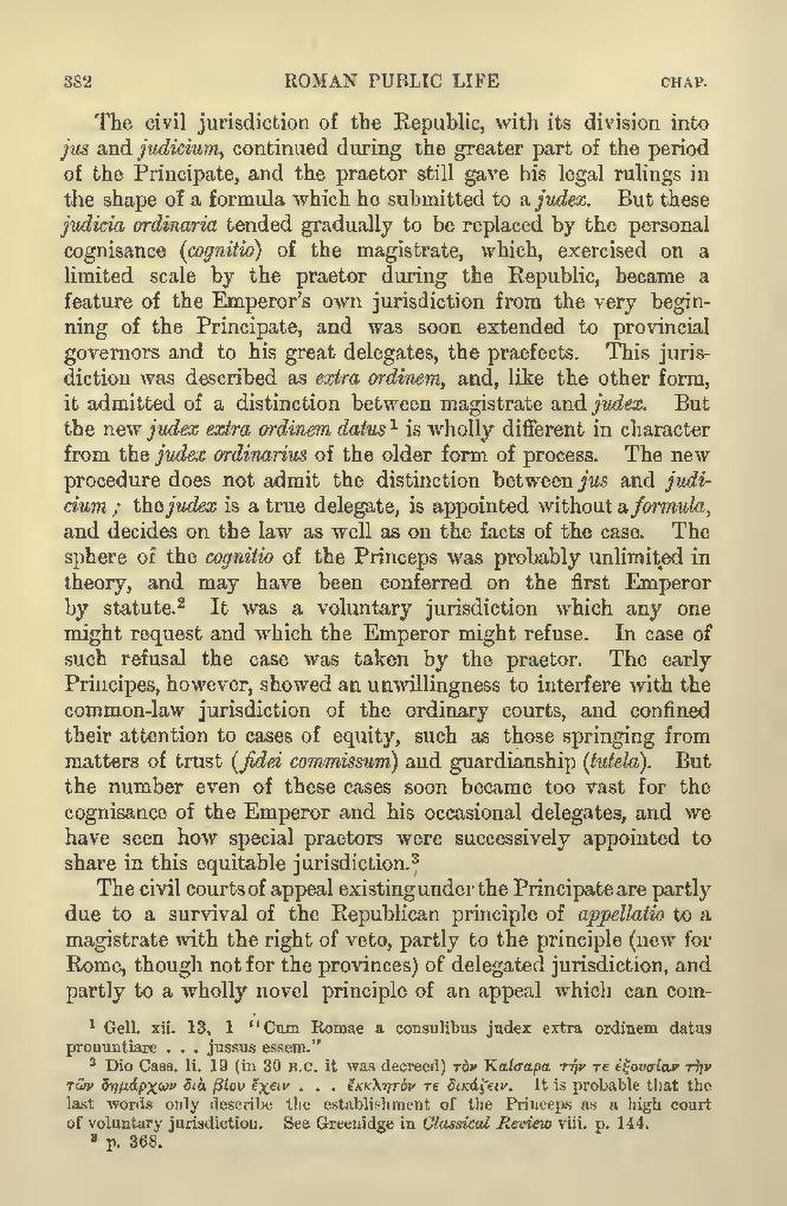The civil jurisdiction of the Republic, with its division into jus and judicium, continued during the greater part of the period of the Principate, and the praetor still gave his legal rulings in the shape of a formula which he submitted to a judex. But these judicia ordinaria tended gradually to be replaced by the personal cognisance (cognitio) of the magistrate, which, exercised on a limited scale by the praetor during the Republic, became a feature of the Emperor's own jurisdiction from the very beginning of the Principate, and was soon extended to provincial governors and to his great delegates, the praefects. This jurisdiction was described as extra ordinem, and, like the other form, it admitted of a distinction between magistrate and judex. But the new judex extra ordinem datus[1] is wholly different in character from the judex ordinarius of the older form of process. The new procedure does not admit the distinction between jus and judicium; the judex is a true delegate, is appointed without a formula, and decides on the law as well as on the facts of the case. The sphere of the cognitio of the Princeps was probably unlimited in theory, and may have been conferred on the first Emperor by statute.[2] It was a voluntary jurisdiction which any one might request and which the Emperor might refuse. In case of such refusal the case was taken by the praetor. The early Principes, however, showed an unwillingness to interfere with the common-law jurisdiction of the ordinary courts, and confined their attention to cases of equity, such as those springing from matters of trust (fidei commissum) and guardianship (tutela). But the number even of these cases soon became too vast for the cognisance of the Emperor and his occasional delegates, and we have seen how special praetors were successively appointed to share in this equitable jurisdiction.[3]
The civil courts of appeal existing under the Principate are partly due to a survival of the Republican principle of appellatio to a magistrate with the right of veto, partly to the principle (new for Rome, though not for the provinces) of delegated jurisdiction, and partly to a wholly novel principle of an appeal which can com-*. It is probable that the last words only describe the establishment of the Princeps as a high court of voluntary jurisdiction. See Greenidge in Classical Review viii. p. 144.]
